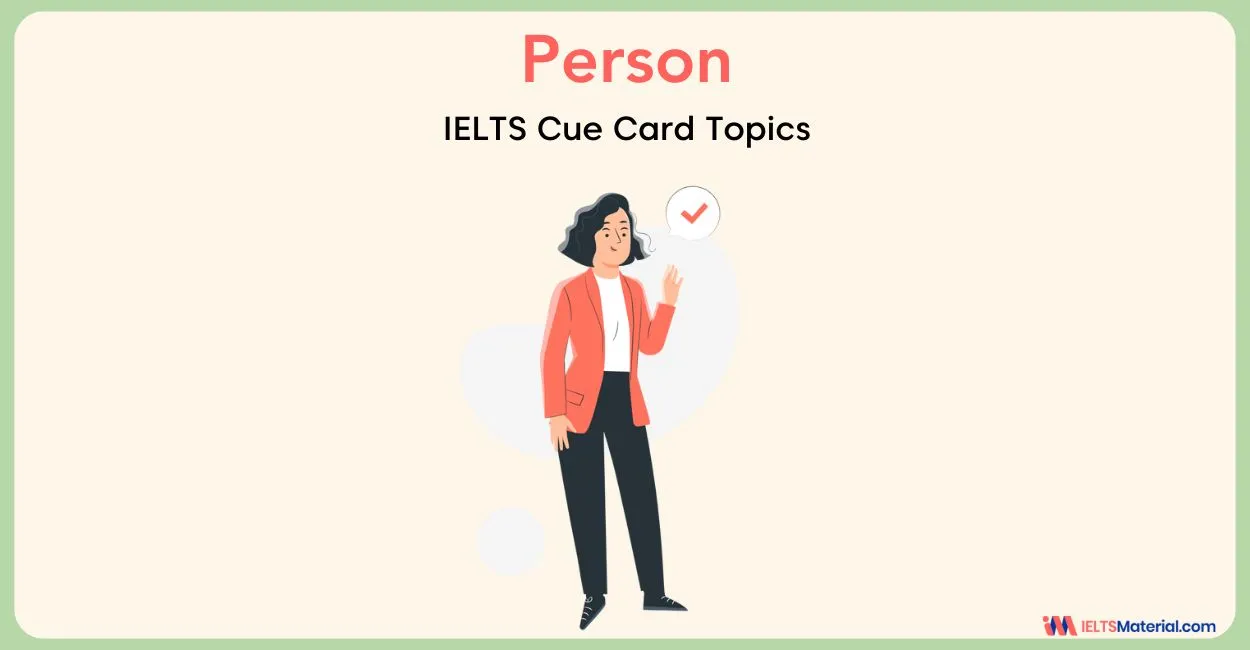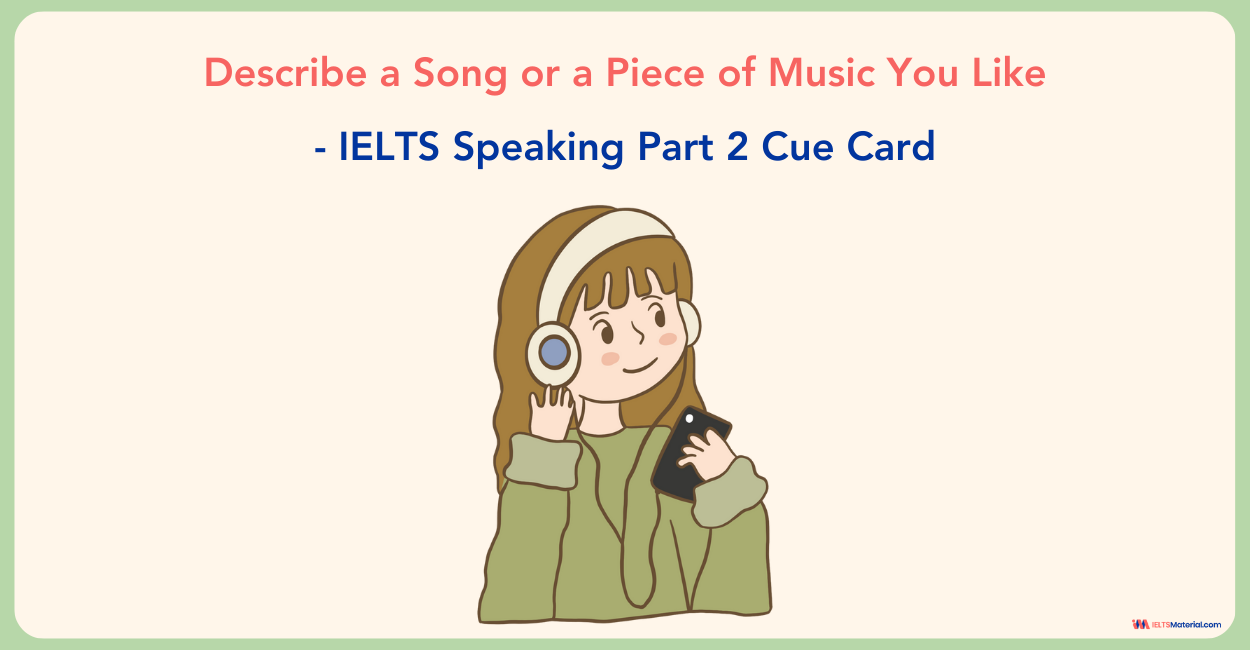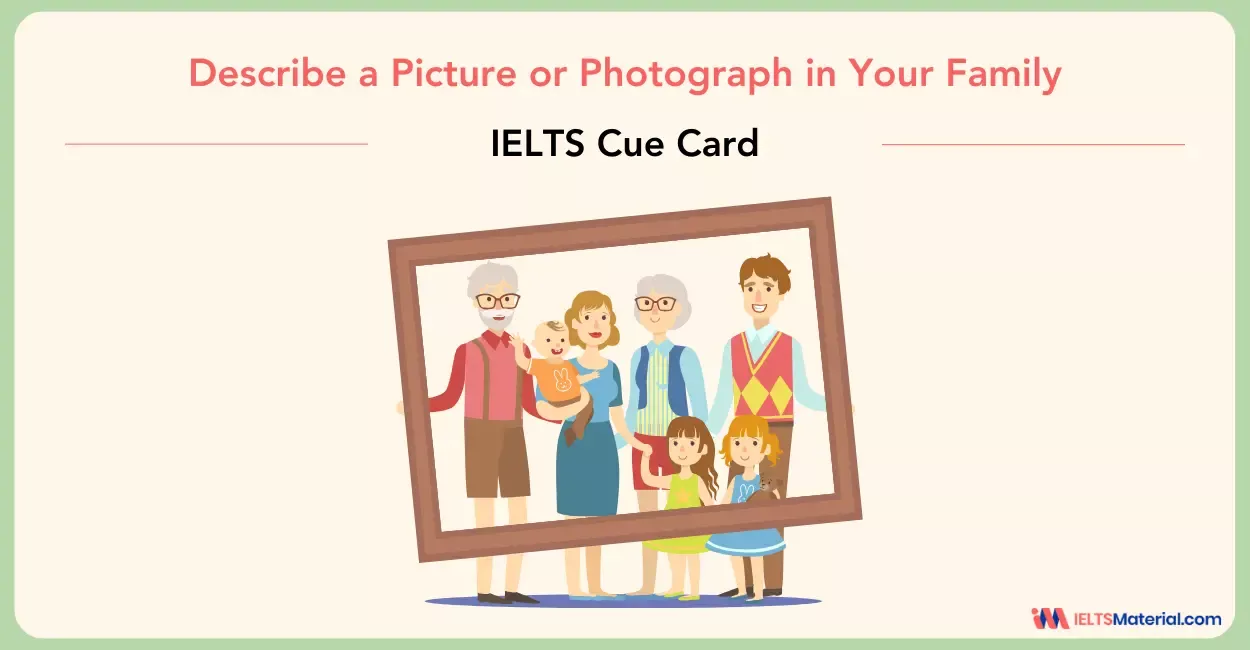Describe a Song or a Piece of Music You Like – IELTS Speaking Part 2
Check model answers for describing a favorite song or piece of music. Enhance your vocabulary with essential words and examples for better IELTS Speaking responses.
Table of Contents

Predicted Cue Cards Topics 2024
This article contains ‘Describe a song or a piece of music you like’ – Cue Card Sample Answers.
During IELTS Speaking Part 2 test, you will have exactly one minute to prepare and speak on a specific topic. This is the IELTS cue card task. You can learn how to communicate clearly and successfully by reviewing sample answers.
In this post, you will not only learn how to answer similar IELTS Speaking Part 2 topics through the three sample answers but you will also find answers to Part 1 and IELTS Speaking Part 3 questions. supported by relevant IELTS Vocabulary.
For more Cue Cards, take a look at IELTS Speaking Part 2 | Topics, Questions and Samples Answers
| Describe a song or a piece of music you like
You should say :
|
Describe a Song or a Piece of Music You Like – IELTS Cue Card Sample Answer 1
The song I’d like to describe is “Imagine” by John Lennon. It’s a timeless classic from the 1970s that falls under the genre of pop-rock. I first heard this song during a music appreciation class in high school, and it instantly resonated with me. The song’s lyrics are poetic and thought-provoking, painting a utopian vision of a world without boundaries, wars, or possessions. Lennon’s soulful voice and the simple yet powerful instrumentation create a hauntingly beautiful melody that stirs the soul. What I admire most about this song is its enduring message of peace, unity, and hope for a better future. It encourages listeners to imagine a world free from the divisions and conflicts that plague humanity. Even decades after its release, “Imagine” remains a powerful anthem for social change and global harmony.
Grab Our 4.5+ Rated Speaking Ebook Now to Level Up! Buy Now!
Describe a Song or a Piece of Music You Like – IELTS Cue Card Sample Answer 2
One piece of music that holds a special place in my heart is Beethoven’s “Moonlight Sonata.” This iconic piano sonata, composed in the early 19th century, is a masterpiece of classical music. I first encountered its haunting melodies during a piano recital in my childhood, and it has captivated me ever since. The sonata’s first movement, in particular, is a breathtaking showcase of Beethoven’s genius. The arpeggios and delicate notes create a serene and introspective atmosphere, evoking a sense of tranquility and contemplation. What I find most captivating about this piece is its ability to evoke a range of emotions through its intricate harmonies and nuanced dynamics. It can be both melancholic and uplifting, reflecting the complexities of the human experience. The “Moonlight Sonata” is a testament to Beethoven’s mastery of expressing profound emotions through music.
Describe a Song or a Piece of Music You Like – IELTS Cue Card Sample Answer 3
One song that always manages to uplift my spirits is “Uptown Funk” by Mark Ronson featuring Bruno Mars. This funky, upbeat track from 2014 falls into the genres of pop, funk, and soul. I first heard it playing on the radio during a road trip with friends, and we couldn’t help but dance and sing along. The infectious groove, catchy hooks, and energetic vocals from Bruno Mars make this song an instant party starter. What I love most about “Uptown Funk” is its ability to put me in a good mood instantly. The lyrics, while not particularly deep, are playful and celebrate the joy of music and dancing. The production is slick and polished, with clever samples and instrumentation that pay homage to classic funk and soul music. Whenever I need a burst of energy or a mood boost, this song never fails to get me moving and grooving.
Vocabulary
- Timeless (adj.): Enduring, eternal, ageless.
Example: The song “Imagine” by John Lennon is considered a timeless classic.
- Resonated (v.): Evoked a feeling or response, struck a chord.
Example: The lyrics of the song resonated with me on a personal level.
- Poetic (adj.): Having the characteristics of poetry, lyrical, and expressive.
Example: The poetic lyrics of “Imagine” paint a vision of a utopian world.
- Utopian (adj.): Ideally perfect, describing an imaginary place or state of perfection.
Example: The song encourages listeners to imagine a utopian world without boundaries or wars.
- Hauntingly (adv.): In a way that is memorable, evocative, and lingering.
Example: The hauntingly beautiful melody of “Moonlight Sonata” stirs the soul.
- Introspective (adj.): Involving self-examination or contemplation.
Example: The first movement of “Moonlight Sonata” creates an introspective atmosphere.
- Serene (adj.): Calm, peaceful, and tranquil.
Example: The serene notes of the piano sonata evoke a sense of tranquility.
- Melancholic (adj.): Characterized by a pensive, sadness, or melancholy mood.
Example: The “Moonlight Sonata” has the ability to be both melancholic and uplifting.
- Infectious (adj.): Easily spreading or catching on, especially in a catchy or irresistible way.
Example: The infectious groove and catchy hooks of “Uptown Funk” make it an instant party starter.
- Polished (adj.): Refined, skillfully executed, and highly developed.
Example: The polished production of “Uptown Funk” pays homage to classic funk and soul music.
Shy to speak? Book a FREE Demo to boost your Speaking now!
Sign Up!
Describe a Song or a Piece of Music You Like – IELTS Cue Card Part 3 Follow-Up Questions
- Do you think music is an important part of our lives? Why or why not?
Music is indeed an integral part of human existence. It transcends cultural boundaries and has the power to evoke emotions, convey messages, and bring people together. Music serves various purposes, from entertainment and self-expression to cultural preservation and emotional healing. It has the ability to uplift our spirits, provide solace during difficult times, and create shared experiences that foster community and understanding.
- What effects can music have on people’s emotions and moods?
Music has a profound impact on our emotions and moods. Certain melodies, rhythms, and lyrics can elicit specific emotional responses, such as joy, sadness, relaxation, or excitement. Upbeat and energetic music can boost our mood and increase feelings of happiness and motivation, while slower and more melancholic tunes can evoke a sense of introspection or melancholy. Music has the power to transport us to different emotional states and can be used as a therapeutic tool for managing stress, anxiety, and depression.
- Do you think the popularity of certain types of music changes over time? Why is that?
Yes, the popularity of certain genres and styles of music tends to change over time. This can be attributed to several factors, including cultural shifts, technological advancements, and the influence of social movements. As societies evolve and new generations emerge, their tastes and preferences in music often reflect their values, experiences, and the zeitgeist of their era. Additionally, the introduction of new recording technologies and distribution platforms can contribute to the rise or decline of particular genres. Social and political movements can also shape the popularity of certain types of music, as artists use their music as a vehicle for expressing their beliefs and connecting with audiences who share similar values.
- What role do you think music plays in preserving cultural traditions?
Music plays a crucial role in preserving cultural traditions and heritage. Many cultures have a rich tapestry of traditional music, which serves as a repository of stories, histories, and values passed down through generations. Traditional music often incorporates elements of language, instrumentation, and performance styles that are unique to a particular culture. By preserving and promoting traditional music, communities can maintain a connection to their roots, celebrate their identity, and ensure the continuity of their cultural heritage. Additionally, music can be a powerful medium for educating younger generations about their cultural traditions and fostering a sense of pride and belonging.
- Do you think music education should be a priority in schools? Why or why not?
Music education should definitely be a priority in schools for several reasons. First, exposure to music and music education can have cognitive benefits for students, enhancing their skills in areas such as memory, concentration, and language development. Second, music education fosters creativity, self-expression, and an appreciation for the arts, which are essential for well-rounded personal growth. Third, it provides students with an opportunity to develop discipline, teamwork, and performance skills, which are valuable in various aspects of life. Additionally, music education can promote cultural awareness and understanding by introducing students to diverse musical traditions from around the world. By making music education a priority, schools can nurture the development of well-rounded individuals and contribute to the preservation and appreciation of cultural heritage.
Vocabulary
- Transcends (v.): To go beyond or rise above, to surpass.
Example: Music transcends cultural boundaries and has the power to bring people together.
- Solace (n.): Comfort or consolation in times of distress or sadness.
Example: Music can provide solace during difficult times in our lives.
- Therapeutic (adj.): Relating to the healing of physical or mental disorders, having a beneficial effect.
Example: Music can be used as a therapeutic tool for managing stress and anxiety.
- Zeitgeist (n.): The defining spirit or mood of a particular period of history as shown by the ideas and beliefs of the time.
Example: The popularity of certain types of music often reflects the zeitgeist of a particular era.
- Repository (n.): A place where things are stored or preserved.
Example: Traditional music serves as a repository of stories, histories, and values of a culture.
- Continuity (n.): The state of being continuous or uninterrupted.
Example: Preserving traditional music ensures the continuity of cultural heritage.
- Cognitive (adj.): Relating to the mental process of acquiring knowledge and understanding through thought, experience, and the senses.
Example: Music education can have cognitive benefits for students, enhancing their memory and concentration.
- Well-rounded (adj.): Having a broad range of skills, knowledge, or experience.
Example: Music education fosters the development of well-rounded individuals.
- Nurture (v.): To care for and encourage the growth or development of.
Example: By making music education a priority, schools can nurture the personal growth of students.
- Preservation (n.): The act of protecting or maintaining something from being damaged, lost, or destroyed.
Example: Music education contributes to the preservation and appreciation of cultural heritage.
Know more expert tips to effortlessly crack IELTS cue cards like this one!
Related Cue Cards

Top 10 IELTS Cue Cards + Band 9 Answers
Explore other Cue Cards

Raajdeep Saha

Jasmine Hoang
Recent Articles

Kasturika Samanta

Kasturika Samanta

Raajdeep Saha







Post your Comments
3 Comments